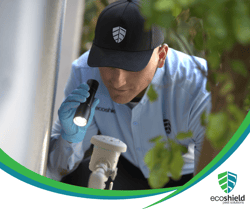 If you've ever pondered the cost-effectiveness of handling pest control on your own, you're not alone. In this comprehensive blog post, we dive deep into the DIY versus professional pest control dilemma. We'll explore the advantages and drawbacks of taking matters into your own hands versus enlisting the expertise of seasoned professionals. Saving money with DIY methods might be a tempting prospect, but what about the potential risks and pitfalls? We're here to guide you through the decision-making process, helping you weigh the pros and cons so you can make an informed choice. From budget considerations to the safeguarding of your home, join us on this journey as we unravel the complexities of DIY pest control and empower you to make the best decision for both your living space and your wallet.
If you've ever pondered the cost-effectiveness of handling pest control on your own, you're not alone. In this comprehensive blog post, we dive deep into the DIY versus professional pest control dilemma. We'll explore the advantages and drawbacks of taking matters into your own hands versus enlisting the expertise of seasoned professionals. Saving money with DIY methods might be a tempting prospect, but what about the potential risks and pitfalls? We're here to guide you through the decision-making process, helping you weigh the pros and cons so you can make an informed choice. From budget considerations to the safeguarding of your home, join us on this journey as we unravel the complexities of DIY pest control and empower you to make the best decision for both your living space and your wallet.
What is DIY pest control?
DIY pest control, or Do-It-Yourself pest control, is an approach to pest control that tasks homeowners with addressing and managing pest issues within their living spaces independently, without relying on professional exterminators. This method involves using various pest control products, tools, and techniques that are available for purchase in hardware stores, garden centers, or online. Homeowners engage in DIY pest control to eradicate or prevent common pests such as insects, rodents, and other unwanted critters from invading their homes and causing damage.
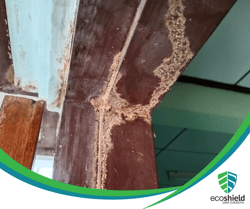 One fundamental (but often overlooked) aspect of DIY pest control is identification. Homeowners need to accurately identify the type of pest causing the issue to choose the most effective control methods. This may involve researching common pests, examining signs of infestation, and understanding the pests' behaviors. Once identified, homeowners can select from a range of pest control products, including sprays, traps, baits, and repellents, to address the specific pest problem. Application methods vary depending on the product, and homeowners must carefully follow instructions to ensure both safety and effectiveness.
One fundamental (but often overlooked) aspect of DIY pest control is identification. Homeowners need to accurately identify the type of pest causing the issue to choose the most effective control methods. This may involve researching common pests, examining signs of infestation, and understanding the pests' behaviors. Once identified, homeowners can select from a range of pest control products, including sprays, traps, baits, and repellents, to address the specific pest problem. Application methods vary depending on the product, and homeowners must carefully follow instructions to ensure both safety and effectiveness.
While DIY pest control offers a sense of autonomy and potential cost savings, it comes with certain challenges. Effectiveness can be contingent on proper identification, the severity of the infestation, and the chosen control methods. Additionally, there is a risk of inadequate application, leading to incomplete pest removal or unintentional harm to non-target species. Regular monitoring and reapplication may be necessary, and homeowners should be aware that certain pests may require professional intervention for complete eradication. Homeowners should also be mindful of the potential hazards when working with chemical pesticides, especially if there are children or pets within the home.
 In conclusion, DIY pest control involves homeowners taking charge of pest management through self-identification, product selection, and application. It may appear to be a cost-effective and proactive approach, but DIY pest control requires careful consideration of the specific pest problem and the efficacy of chosen methods. While suitable for some select situations, homeowners should recognize the limitations of DIY pest control and must be willing to seek professional assistance when needed for more complex or persistent infestations.
In conclusion, DIY pest control involves homeowners taking charge of pest management through self-identification, product selection, and application. It may appear to be a cost-effective and proactive approach, but DIY pest control requires careful consideration of the specific pest problem and the efficacy of chosen methods. While suitable for some select situations, homeowners should recognize the limitations of DIY pest control and must be willing to seek professional assistance when needed for more complex or persistent infestations.
Is DIY Pest Control Always Cheaper Than Professional Pest Management?
While DIY pest control can be a cost-effective solution for many homeowners, there are instances where opting for professional pest management services becomes a more economical and efficient choice. One common scenario is when the infestation is extensive or involves multiple areas of the home. DIY products, though readily available, may not be equipped to handle large-scale infestations effectively. In such cases, homeowners may end up spending more on repeated purchases of over-the-counter products without achieving the desired results.
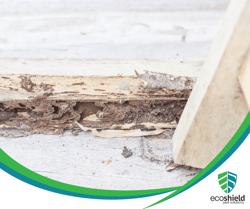 Certain pests require specialized knowledge and equipment for effective control. For instance, termite infestations often demand professional intervention due to the complexity of their colonies and the potential structural damage they can cause. Professionals can employ advanced methods like termite baiting systems or liquid barrier treatments, which may be more expensive upfront but are highly effective in the long run. In contrast, relying solely on DIY termite control, such as using store-bought termite sprays, might lead to incomplete eradication and further damage, ultimately costing homeowners more in structural repairs.
Certain pests require specialized knowledge and equipment for effective control. For instance, termite infestations often demand professional intervention due to the complexity of their colonies and the potential structural damage they can cause. Professionals can employ advanced methods like termite baiting systems or liquid barrier treatments, which may be more expensive upfront but are highly effective in the long run. In contrast, relying solely on DIY termite control, such as using store-bought termite sprays, might lead to incomplete eradication and further damage, ultimately costing homeowners more in structural repairs.
Time is another factor to consider. DIY pest control often requires significant time and effort on the part of homeowners. For example, attempting to eliminate a bed bug infestation using DIY methods like vacuuming, laundering, and applying store-bought insecticides may require multiple treatments and thorough follow-up inspections. In contrast, professional pest management services can provide a more time-efficient solution, as experienced technicians are equipped to handle infestations promptly, reducing the overall cost in terms of time and effort expended by homeowners.
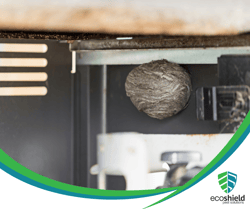 Health and safety concerns can also contribute to the cost disparity between DIY and professional pest control. Some pests, such as stinging insects like wasps or aggressive rodents, pose risks that may be better managed by professionals trained in safe removal techniques. DIY attempts to address such infestations without proper knowledge and protective gear can lead to injuries, medical expenses, and potential property damage.
Health and safety concerns can also contribute to the cost disparity between DIY and professional pest control. Some pests, such as stinging insects like wasps or aggressive rodents, pose risks that may be better managed by professionals trained in safe removal techniques. DIY attempts to address such infestations without proper knowledge and protective gear can lead to injuries, medical expenses, and potential property damage.
Lastly, DIY pest control can become more expensive when it fails to address the root cause of the problem. Professionals conduct thorough inspections to identify and address the conditions that attract pests, providing long-term solutions. In contrast, DIY efforts may overlook these underlying issues, resulting in recurring infestations and the continuous need for pest control products, ultimately adding up in costs over time.
In essence, while DIY pest control is suitable for certain situations, it may not be the cheaper option in cases of extensive infestations, specialized pest control needs, time considerations, health and safety risks, and when underlying issues are not addressed. In such instances, investing in professional pest management services can be a more economical and effective solution in the long term.
When is it best to use a professional pest control company?
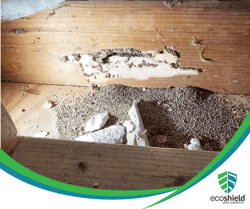 Choosing to hire a professional pest control company becomes essential in various situations where the complexity, scale, or potential risks associated with the pest infestation surpass the capabilities of DIY methods. One key scenario is when facing infestations of wood-destroying pests such as termites. Termites can cause significant structural damage to homes, and professional pest control companies employ advanced techniques like termite baiting systems and liquid barrier treatments that are highly effective in eradicating these relentless pests. The expertise of professionals ensures a thorough assessment of the infestation and the implementation of targeted solutions.
Choosing to hire a professional pest control company becomes essential in various situations where the complexity, scale, or potential risks associated with the pest infestation surpass the capabilities of DIY methods. One key scenario is when facing infestations of wood-destroying pests such as termites. Termites can cause significant structural damage to homes, and professional pest control companies employ advanced techniques like termite baiting systems and liquid barrier treatments that are highly effective in eradicating these relentless pests. The expertise of professionals ensures a thorough assessment of the infestation and the implementation of targeted solutions.
Another instance where professional pest control is advisable is when dealing with health-threatening pests. Certain pests, like rodents and cockroaches, can carry diseases and trigger allergies. Professional pest control companies have the knowledge and tools to manage these situations safely. They can implement integrated pest management strategies that go beyond mere extermination, focusing on prevention and environmental modifications to reduce the risk of reinfestation.
Professional pest control is also warranted when facing aggressive or potentially dangerous pests. Stinging insects like bees, wasps, or hornets can pose serious health risks, especially for individuals with allergies. Attempting to remove or control these pests without the proper expertise and equipment can lead to dangerous encounters. Pest control professionals are trained to handle such situations safely, using protective gear and specialized methods to eliminate the threat.
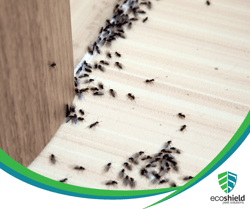 When time is of the essence, such as in cases of rapid infestations or when dealing with pests that multiply quickly, professional pest control offers a more expedited solution. Pest control technicians can efficiently assess the situation, implement effective treatments, and provide ongoing monitoring to ensure the infestation is completely eradicated.
When time is of the essence, such as in cases of rapid infestations or when dealing with pests that multiply quickly, professional pest control offers a more expedited solution. Pest control technicians can efficiently assess the situation, implement effective treatments, and provide ongoing monitoring to ensure the infestation is completely eradicated.
Moreover, professional pest control services often include a guarantee or warranty for their work. This means that if the pest problem persists after treatment, the company will return to address the issue at no additional cost. This assurance provides homeowners with peace of mind and financial protection, ensuring that the problem is effectively resolved.
How much does professional pest control cost?
Pinpointing an exact cost for professional pest control is challenging due to several variables that influence the overall expense. The cost of professional pest control services is contingent on factors such as the type and severity of the pest infestation, the size and layout of the property, the specific treatment methods employed, and the geographical location. Different pests require different approaches, and the extent of the infestation plays a crucial role in determining the necessary resources and time for eradication.
 Additionally, the choice of pest control company can significantly impact the cost. Established companies with a proven track record and a higher level of expertise may charge more for their services. Factors such as the reputation of the company, the use of eco-friendly or specialized treatments, and the inclusion of warranties or guarantees in the service package can contribute to variations in pricing. Local market conditions and the demand for pest control services in a particular region can also influence costs.
Additionally, the choice of pest control company can significantly impact the cost. Established companies with a proven track record and a higher level of expertise may charge more for their services. Factors such as the reputation of the company, the use of eco-friendly or specialized treatments, and the inclusion of warranties or guarantees in the service package can contribute to variations in pricing. Local market conditions and the demand for pest control services in a particular region can also influence costs.
To obtain an accurate estimate, it is advisable for homeowners to request quotes from multiple pest control companies. A professional pest control technician will typically conduct an on-site inspection to assess the extent of the infestation, identify the pest species, and evaluate the unique characteristics of the property. Based on this assessment, the technician can provide a customized quote that reflects the specific needs and challenges of the situation. While it might be impossible to provide a set figure without such an inspection, this personalized approach ensures that homeowners receive an accurate and tailored cost estimate for effective pest control services.
How can I get a quote from EcoShield Pest Solutions?
Discover the ultimate choice for year-round pest control solutions with EcoShield. Our services are not only effective but also environmentally conscious, providing you with a reliable and responsible approach. We stand behind our commitment with a full guarantee. What's even better? EcoShield offers complimentary, no-obligation inspections and quotes. Our aim is to ensure homeowners are well-informed and empowered to make the best choice for their unique pest control needs. Take the first step in your pest control journey today by giving EcoShield a call or filling out the form on this page. Learn more and get a complimentary quote – your solution to a pest-free happy home is just a call or click away!